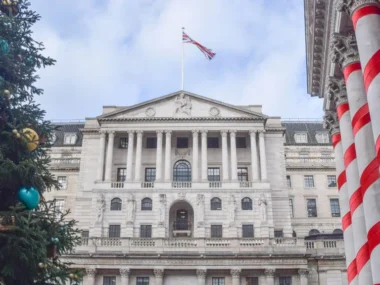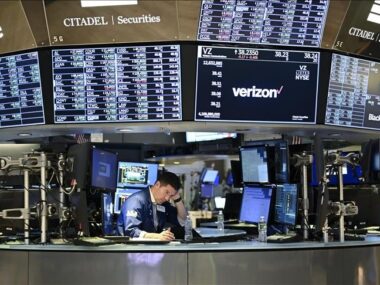The industry is expected to have a difficult first few months of 2024 as consumer confidence remains low.
Retailers face a difficult new year as sluggish consumer demand is projected to combine with a slew of cost increases, including a higher minimum wage.
According to estimates released today by the Retail Think Tank, a group of industry experts that analyze the health of the sector, shoppers are likely to put their purchasing on hold during the first months of 2024, as rising mortgage and rental expenses weigh on consumer confidence.
“It’s only going to get worse,” Paul Martin, UK head of retail at advisory firm KPMG, predicted.
While demand may increase in the spring, retailers are expected to face a financial squeeze, particularly those trading solely online in the hard-hit fashion sector or without strong financial backing, as the April minimum wage increase and a 6.7% business rate increase for most retailers take effect.
“There will be pressure on consolidation,” the thinktank said, implying that buyouts and mergers are likely.
Martin described the run-up to Christmas as “pretty subdued,” with buyers purchasing fewer products as they battled increased household expenditures. Clothing sales have been especially hard hit due to the relatively warm weather, and buyers have refrained from making large purchases such as furniture or large electrical products.
According to the Office for National Statistics, retail sales declined 2.7% year on year in October, with even supermarket sales hardly increasing.
like many families take advantage of the entire week of trading, including a complete weekend, ahead of Christmas Day on Monday, we could see a really strong end to the season, like we did in 2022. Many schools’ relatively late end of term will also drive a last-minute rush.
However, because most decisions on the largest part of the non-food shop – apparel – will have already been made in advance of Christmas festivities, Martin concluded that “at best, there will be stagnation.”
“The final quarter of 2023 saw a lacklustre performance with volume pressure in non-food categories and the real sense that consumers are tightening their belts,” said Nick Bubb, an independent retail analyst who also participates on the panel. While much relies on what happens in the next weeks, there has already been a lot of discounting, which is likely to continue beyond Christmas.”
Some consumers should have more money in their pockets after Christmas, as pay growth finally outpaces inflation, as well as reductions in national insurance contributions and gasoline expenses. However, the thinktank believes that consumer concerns about the global economy and high borrowing costs will keep their finger on the purchasing pause button in the short term.
The Bank of England’s statement that interest rates will continue high will not provide comfort to individuals nearing the end of mortgages, vehicle finance agreements, or in need of a loan, while the pessimism surrounding the ailing economy may erode employment confidence and opportunities.
“Despite further falls in inflation and the Bank of England potentially beginning to reduce interest rates in the middle of the year, we expect the UK economy to struggle to gain momentum in 2024.” “Household spending and retail sales will grow slowly in general,” said Charles Burton of the analysis firm Oxford Economics, another panelist.
As little indulgences, known as the lipstick effect, continue to win over customers, health and beauty is projected to be one of the few industries to see ongoing growth in the new year, building on the run-up to Christmas. However, luxury retail and big-ticket sectors like furniture and home appliances are projected to continue to fall.
According to Burton, the Midlands, Scotland, and the northeast of England would be particularly heavily hit as employment losses in the industrial sector reduce regional spending power.











